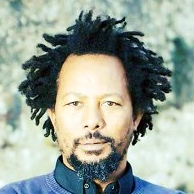Voices
Israelis and SA Jews need to stop and listen…
In recent times, there has been heated debate over the law of nationality. One can argue about the nature and essence of the law, but I do not want to argue about its social implications and the stormy debate about the results.

DANNY ADENO ABEBE
I want to focus on the style of debate which is being conducted in Israel. There is no longer reasoned and intelligent argument, in which each side advocates the justice of its own way and explains the nature of its support or opposition to the law itself.
In Israel, there is no longer dialogue on different principles and opinions in a variety of areas. Instead, there is labelling and violent, offensive debate at all levels of society. The proposed law made it clear to us that the Israeli reality has surpassed any reasoned and logical debate. We have gone too far. It is not about those opposing the supporters of the law, the argument is between “traitors” and “lovers”.
Anyone who speaks out against the law is categorised as a traitor, and a lover of Arabs over Jews. Anyone who supports the law is considered a lover of the land of Israel. This labelling can kill us socially, divide us, and sew hatred amongst us.
The debate on social networks, in newspapers, and on radio and television programmes takes place mainly through shrieks and insults, with even senior ministers taking part in this inappropriate behaviour.
Of late, we have been experiencing a crisis of not listening to each other. We have stopped listening to those who think differently from us politically and economically.
The debate over the nationality law revealed the ancient Israeli problem in full bloom – an inability to listen to each other.
Admittedly, the offensive style of short-lived debates is not only the domain of Israelis with short nerves and direct speech, it seems to have spilled over to diaspora Jews.
In my early days as a shaliach of Habonim Dror in South Africa, some school pupils and a few adults asked me, “How can you represent a pro-Palestinian movement?” Or they would tell me that Habonim Dror supported the Palestinians.
Obviously, children who say these things have heard it at home or elsewhere. If a child says such things at school, and the teacher does not correct his mistakes right away, there is something wrong. Habonim Dror is nothing like that. It is a movement in which the members are intelligent, challenging, and ask tough Jewish questions on any subject. The Habonim members I have met since I have been here are enthusiastic Zionists, and being Jewish is so much a part of their identity. If I felt for a moment that any one of them didn’t faithfully represented my Zionist values, I would not have stayed here.
As an Israeli, I took a long journey to realise my Zionist dream. As someone who served the State of Israel with great love, I would not serve as a shaliach in a movement that promotes unilateral support for the Palestinian narrative. My children were born in Israel, and my country is the beloved landscape of their childhood. However, the futile debate about Habonim Dror and the false narrative that has been attached to the movement aligns itself with the battle that is being waged in Israel in all its ugliness.
Like the battle over the law of nationality, this too is an empty argument, hollow, offensive, and divisive, with lots of negative labelling. It does not represent Jewish morality, and especially negates the other side without examining the facts.
In truth, debate is part of our unique Jewish essence. There is no dispute that the Torah encourages us to ask questions, and to find answers. I do not know a Torah scholar who does not ponder over every paragraph in the sources. In the thousands of years of our existence as Jews, even in difficult times, we took nothing for granted. We always asked questions that bothered us as diaspora Jews.
Every halachic ruling is based on deep and thorough debate about its essence among rabbinical authorities. I do not know a single line in the Gemara or in the Mishnah that does not have a reasoned debate and a problem with different interpretations and opinions. The best testimony of Jews being divided in almost every sphere is the story of the sages Shammai and Hillel. Yes, they quarrelled, argued, banged on the table, and stood for days and nights yelling at each other on almost every subject, but everything was done out of awe of G-d, with good taste and respect for each other.
When we come to slander, insult, contradict while cancelling out different opinions, we must ask why the Beit Hamikdash was destroyed. It was destroyed for unjustified hatred!
Let us improve our ability to listen, not rush to judge, contain different opinions, and check every narrative. We must shy away from becoming people who disseminate bad and baseless hearsay and, most importantly, we need to continue to be Jews who ask difficult questions on any subject, while listening to that which we disagree with. In debates on Israel and here, South African Jews lack the ability to listen, to scrutinise, and draw on deep truths.
- Abebe is shaliach of Habonim Dror and the World Zionist Organisation.
Michael Rosenberg
September 17, 2018 at 2:07 pm
‘No where does it say that we turn the other cheek, we are Jews not sniveling babies – Enough is Enough
After how many years of the world trying to destroy us
After how many years of the world demonizing us
After how many years of us trying to be reasonable
After how many years of us trying to have dialog
And now one again we are the evil ones because we have had enough
Get off your high horse, the fall is really hard’